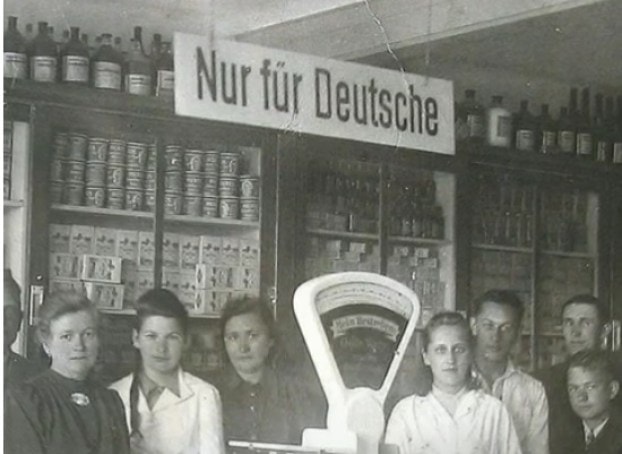In the time of intensifying attacks on Poland by German politicians supposedly fighting for human rights in our country as well as the increasingly aggressive initiative to put the blame for starting World War II on the mythical Nazis without any national affiliation, our duty towards our ancestors is to keep reminding of the fact that these were the Germans who oppressed the Polish nation, started the war and have Polish blood on their hands.
Poles were the subject of German repressions from the very beginning of World War II. Already in the autumn of 1939, after the end of the Polish September Campaign, the Germans started to implement their plan to destroy the nation of Poland. According to Czesław Łuczak and his work Dzień po dniu w okupowanej Wielkopolsce i Ziemi Łódzkiej (Kraj Warty), it is worth taking a closer look at some of the „improvements” introduced by the German occupant in the name of the struggle for human rights in Poland.
On 22 November 1939, senior SS and police commander in Reichsgau Wartheland gave a special order concerning obligatory personal revision of Poles staying at resettlement camps. Three days later, NSDAP Office of Racial Policy published a memorial regarding „the treatment of the population of former Polish territories according to racial and political criteria”. This document outlined, among others, the displacement of Poles from the incorporated lands and the settlement of Germans in their place, limiting the population growth of Poles and keeping them on a low intellectual level.
On 3 December 1939, the state authorities of the Third Reich made a decision to pay remuneration for two days off during Christmas only to German employees. Furthermore, the governor of the Reichsgau Wartheland, Arthur Greiser issued an ordinance concerning the payment of Polish workers, according to which from 11 December onwards they received only 80% of the German workers’ basic wage. At the same time, Greiser recognised beheading as an acceptable form of capital punishment for Poles.
Before Christmas (i.e. 24 December), German clerical law, which excluded people of Polish nationality from holding clerical posts, was introduced in the district of Poznań by decision of the central authorities of the German Reich. Next, on 20 March 1940, numerous benches in Poznań’s parks and streets were painted with an inscription: „Nur fϋr Deutsche” (Only for Germans). As a result, people of Polish nationality were forbidden from using them.
The above-mentioned examples show only a small portion of „the struggle for human rights” enforced by the German occupant on the territory of Poland. One should bear in mind that Poles were considered „subhuman”, whereas those rights belonged only to the Germans.
Tłum. D.L.
[Wróć do tekstu w języku polskim]
Podoba Ci się to co robimy? Wesprzyj projekt Magna Polonia!





